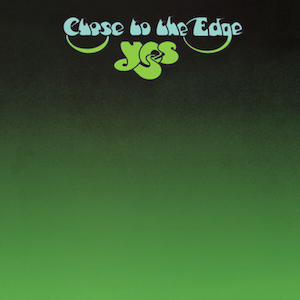
Close to the Edge (1972)

1. Close to the Edge
2. And You and I
3. Siberian Khatru
If Fragile lit the match, Close to the Edge was the full-blown ignition. For many fans and critics alike, this is the pinnacle—the ultimate Yes statement. Three songs. That’s all. Side one consists entirely of the title track. Side two is split between two compositions. It’s an album that dares to be lean in quantity but maximalist in ambition.
The band’s classic lineup carries over from Fragile, and the sense of continuity pays off. The playing is sharper. The transitions tighter. The compositions denser. Yes has always thrived on musical complexity, but here they balance their ambition with an unusual clarity of vision. The title track, Close to the Edge, is divided into labeled movements—almost classical in form—and features one of the group’s most transcendent moments in the I Get Up, I Get Down section, where Chris Squire’s airy vocals float alongside Wakeman’s majestic church organ. It’s as spiritual as progressive rock ever dared to be.
And You and I follows, a more acoustic, pastoral piece that slowly builds into a grand, sweeping conclusion. In contrast, Siberian Khatru opens with energy and doesn’t let up—a more rock-forward counterpoint to the record’s otherwise meditative tone. All three pieces remain live staples for a reason: they showcase the band operating in peak synchronicity. Shifting time signatures, key changes, and layered motifs abound, yet there’s a cohesion that keeps it all grounded.
Behind the scenes, however, not all was harmonious. The process of crafting such a precise and elaborate album was anything but easy. Tensions simmered, and by the time the record was finished, drummer Bill Bruford had decided he’d had enough. He left the band before the album was even released, signaling yet another personnel change—and the exit of one more founding member.
Still, whatever frictions fueled the sessions, the results speak for themselves. Close to the Edge isn’t for the prog-averse. It’s not background music. It demands immersion, attention, and a bit of patience. But for those willing to go along for the ride, the payoff is immense. This is not just a great Yes album—it’s one of the defining artifacts of progressive rock’s golden era.
Go to the Next Review
Go back to the main page